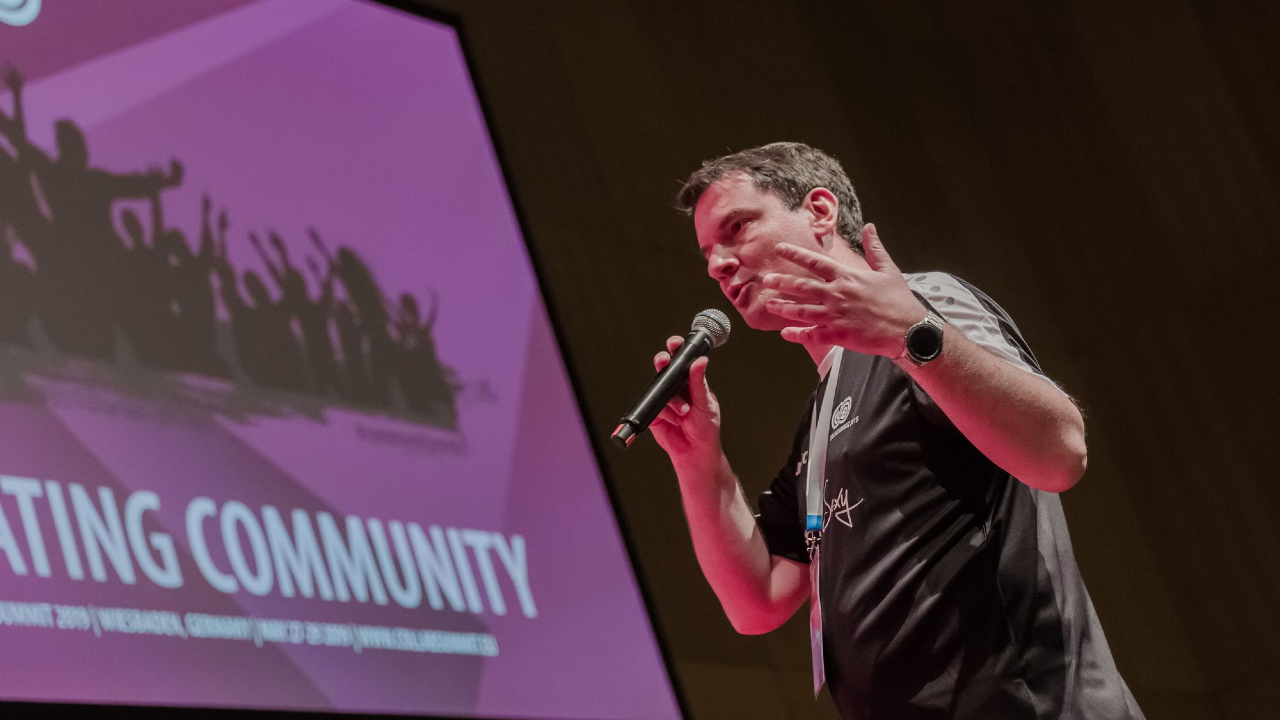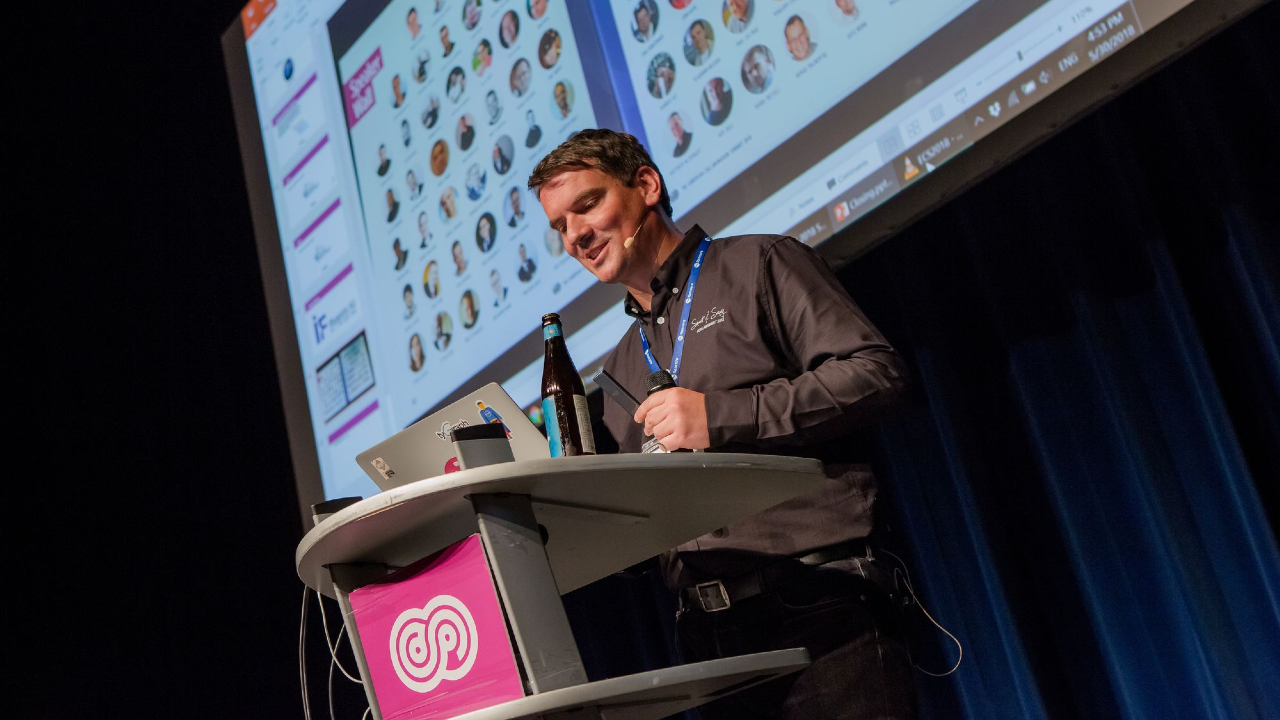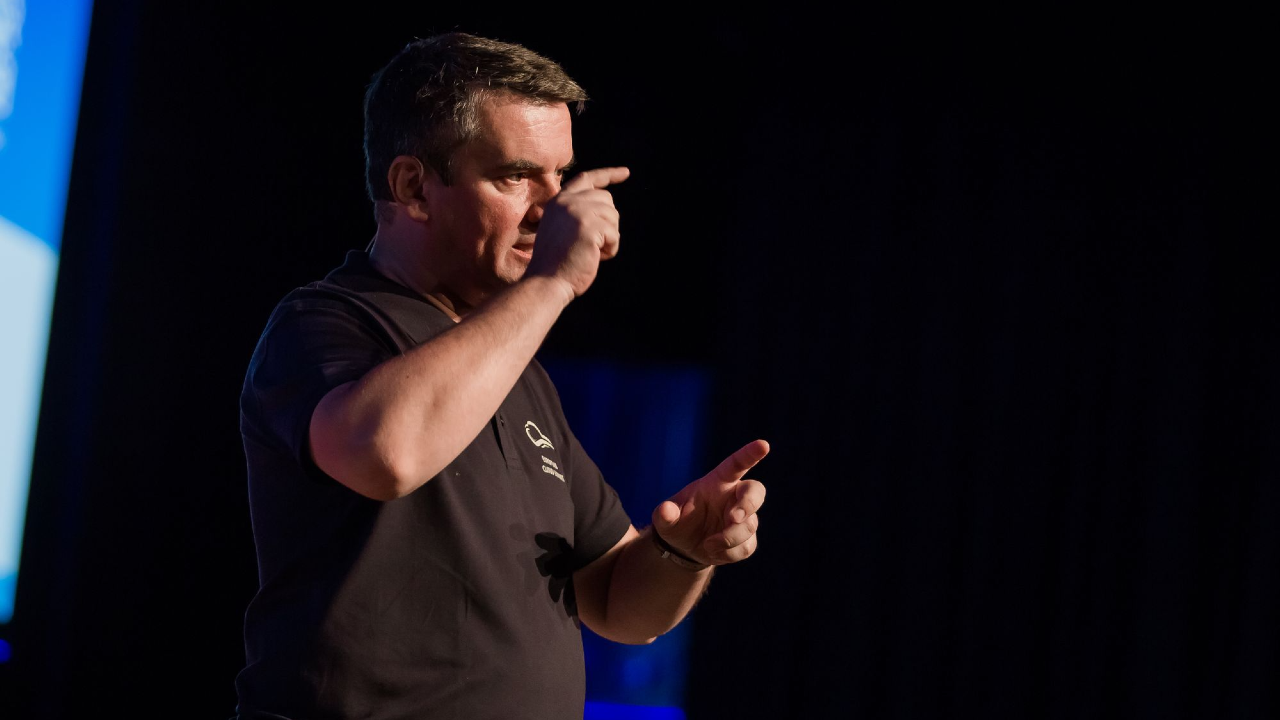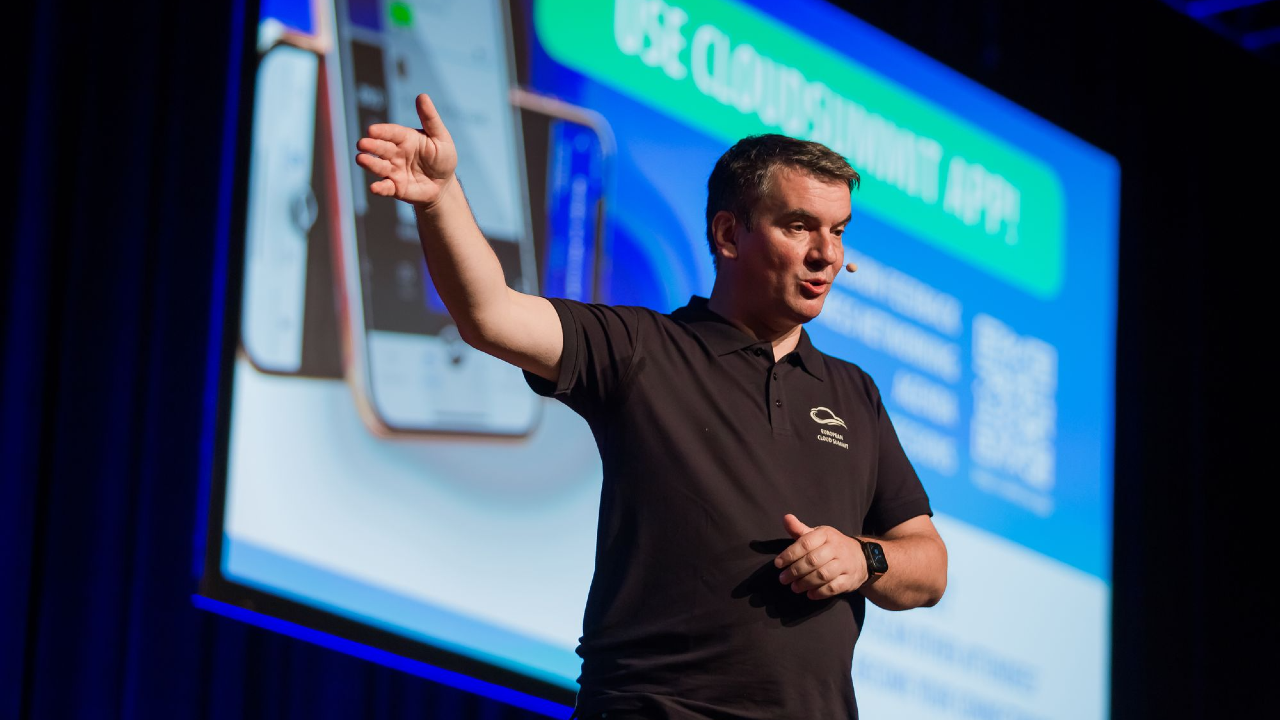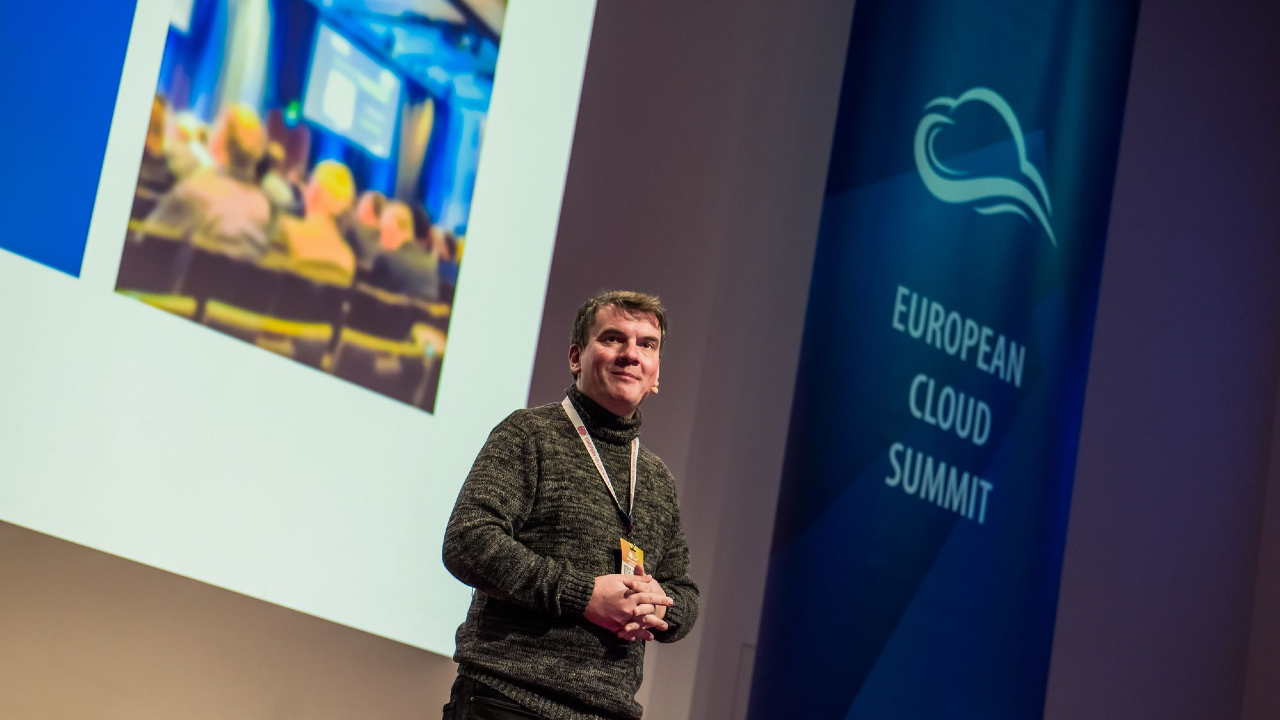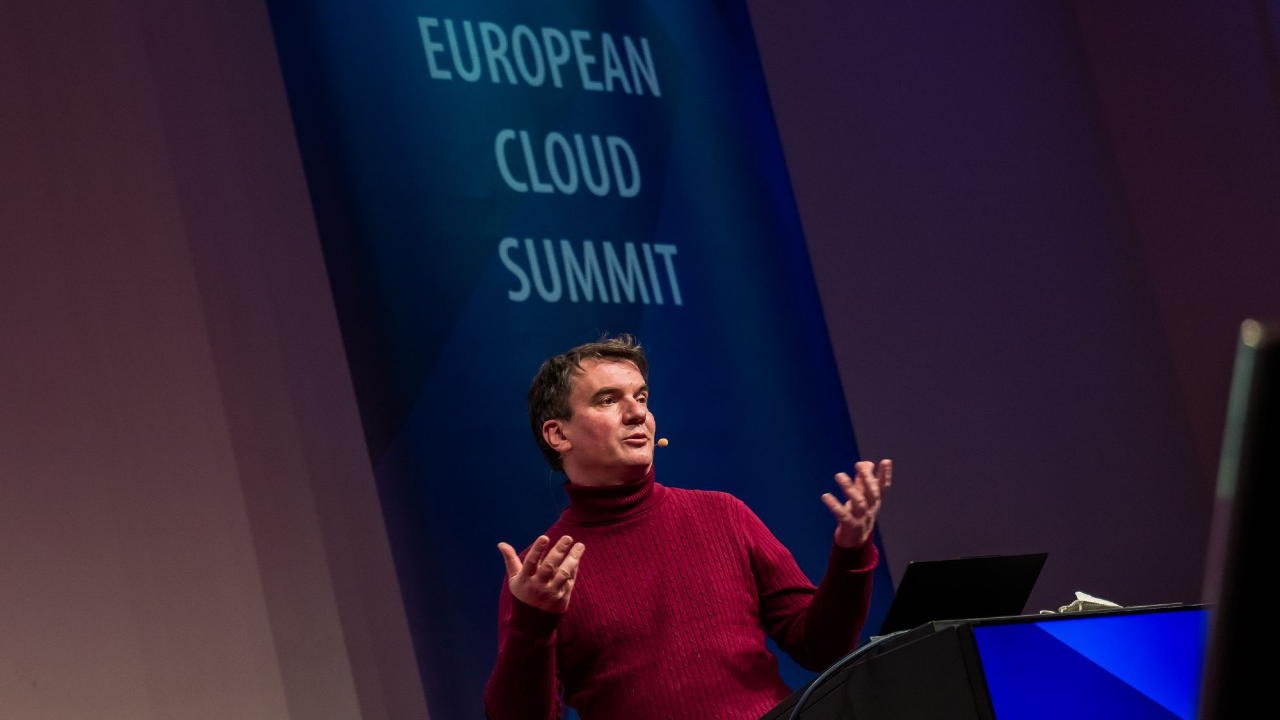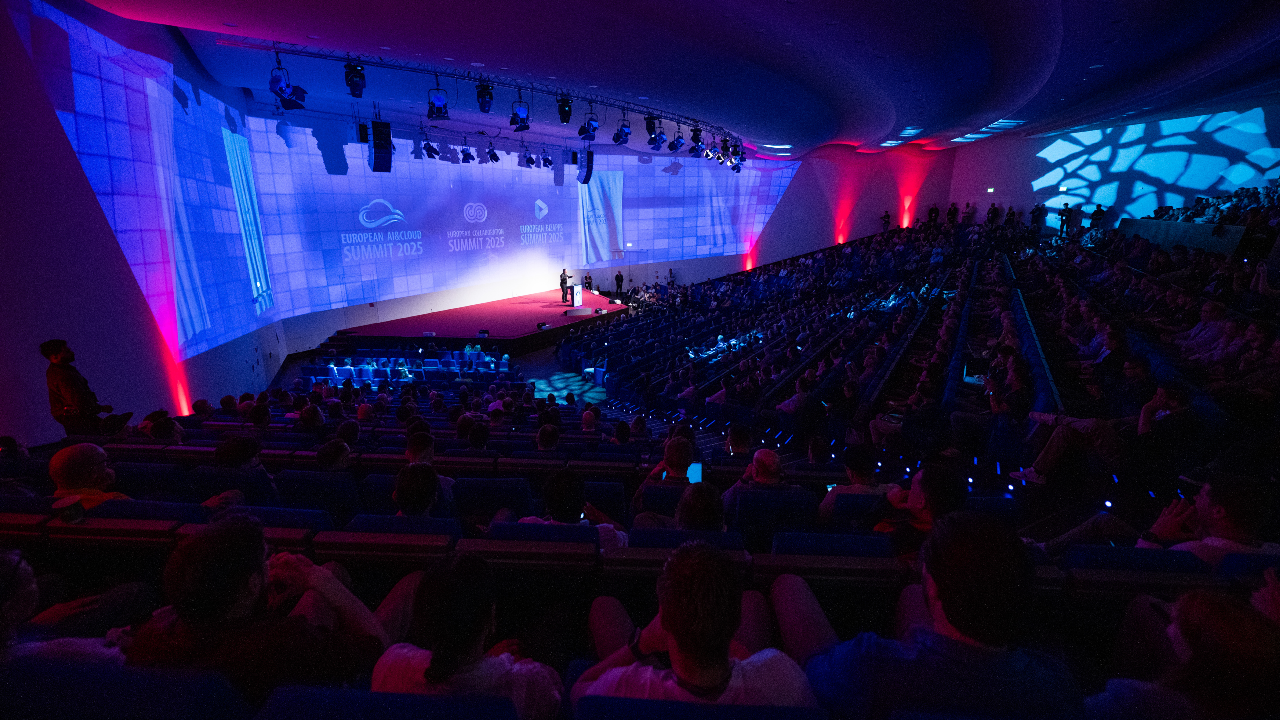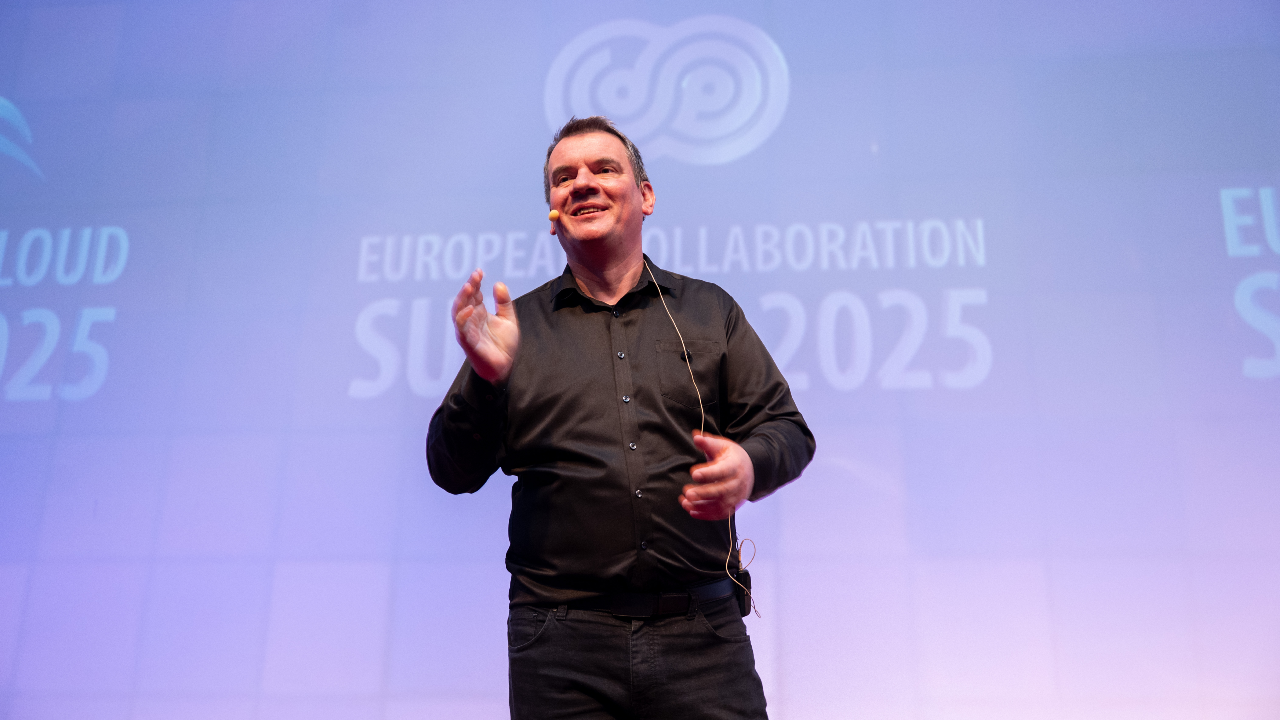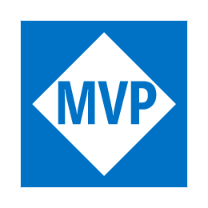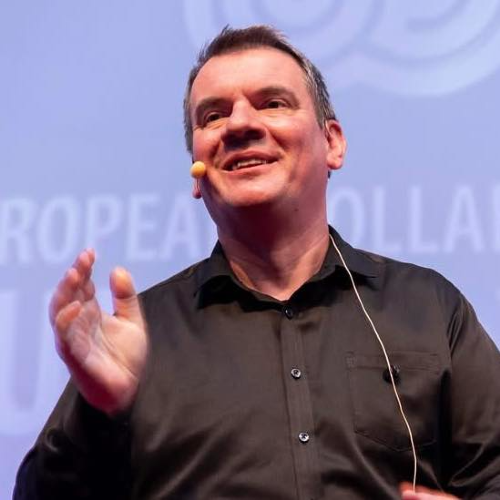run.events mastermind
Mastermind at run.events. Entrepreneur and leader channeling 35 years of software industry expertise and 14 years of producing premium tech events. Public Speaker with over 400 keynotes and sessions in the past 25 years. A Microsoft Most Valuable Professional (MVP) for AI Platform and Microsoft Azure, and a Microsoft Regional Director. Spiritus movens at CollabSummit, AI & CloudSummit, and BizAppsSummit. Firmly believes in leading by example and motivation. Lives beside the oldest vineyard in the Rhine valley. Prefers collecting stories to collecting possessions. Can make his wife and kids laugh anytime.
Everyone's talking about AI agents - vendors are promising revolution, your competitors claim they're already using them, and your team is asking for budget. But what's actually delivering value today versus what's still marketing hype? In this session, I'll share our honest experience deploying AI agents in production environments - including the wins, the failures, and the uncomfortable truths nobody mentions in sales pitches. No vendor slides, no theoretical promises - just real results from real implementations. Drawing from our work at run.events, we'll examine where AI agents are genuinely transforming operations: **Where agents are actually delivering ROI:** - Intelligent matching and recommendations that increase engagement (and revenue) - Workflow automation that handles complexity, not just repetitive tasks - Dynamic personalization that scales without scaling headcount - Resource optimization that adapts faster than any manual process **What we'll cover:** - The real cost of implementation - time, talent, and infrastructure (it's more than the license fee) - How to evaluate agent solutions: questions your vendors hope you won't ask - Change management realities: why the technology is often the easy part - Where agents fail spectacularly - and how to avoid expensive lessons we've already learned **You'll leave knowing:** - Which use cases justify investment today vs. which need more maturity - How to set realistic expectations with stakeholders - Red flags that signal an agent project is heading toward failure - A practical framework for evaluating AI agent opportunities in your organization Whether you're approving budgets, leading digital transformation, or simply trying to separate signal from noise - this session will give you the clarity to make informed decisions about AI agents. No hype, no hand-waving, just what it really takes to deploy AI that your organization will thank you for.
Read moreEveryone's talking about AI agents these days - but what are they actually good for? In this architecture and development session, I'll cut through the hype and show you how we're building intelligent agents that solve real business problems (not just generate fancy demos 😉). I'll take you through our journey implementing Microsoft Semantic Kernel and LLMs to develop autonomous agents that actually deliver value. No theoretical hand-waving - we'll dive deep into practical scenarios where agents excel: understanding context, making intelligent decisions, and adapting to user needs in real-time. Through concrete examples from various domains (including our work in event tech with run.events), we'll explore where agents truly shine: * Context-aware recommendation systems that users actually appreciate * Intelligent workflow automation that goes beyond simple if-then rules * Dynamic personalization that adapts to individual patterns * Smart scheduling and resource allocation We'll cover: * The tech stack we chose and why (including spectacular failures along the way) * Architecture patterns for building maintainable agent systems * When to use agents vs. traditional approaches (spoiler: agents aren't always the answer) * Live coding examples - because theory is nice, but seeing is believing You'll learn the difference between "AI agents" as a buzzword and agents as practical problem-solvers. Whether you're writing code, designing systems, or evaluating AI solutions for your organization, you'll walk away knowing exactly when agents make sense - and more importantly, when they don't. Join me for a no-nonsense exploration of what it really takes to build AI agents that users will thank you for, not just tolerate.
Read moreCan Europe AI? You have probably heard about "Le Chat", and AI chat similar in its functionality to ChatGPT or Claude.ai. But, Mistral AI, French company behind "Le Chat" has much more to offer, and at the moment, together with German DeepL, it is the best what Europe has to offer in the AI arena. Also, Mistral AI is committed to open-source development and has released several models under open-source licenses, which makes it a competitor not only to Open AI and Anthropic, but also to DeepSeek and Meta's Llama. This will be a deep dive session into Mistral: it's capabilities, it's lovely French quirks, and how can you make the use of it. In this session we will discuss: - Mistral AI basics - Hosting and consuming Mistral AI (Mistral APIs, Azure AI, self-hosting) - Using Microsoft tech stack (Semantic Kernel and Microsoft AI Extensions) to work with Mistral AI - Real life example of using Mistral AI within a product development on the example of run.events À bientôt!
Read moreThe world of AI is no longer reserved for cloud providers — some AI models can run on your own machines, with surprisingly good results. But how far can you really go? In this session, we'll explore what you can achieve with solutions like Ollama and Stable Diffusion, right on your own hardware — whether that's a high-end laptop, a beefy desktop, or a small local server. We’ll cut through the hype and focus on the real-world capabilities, limitations, and practical considerations. What models can you run? How much performance do you need? What use cases make sense? Where does local AI shine — and where does it fall short? Along the way, we'll dive into concrete examples how we utilized Ollama for run.events, using Semantic Kernel, Microsoft's framework for building AI-driven applications, to show how you can combine local models with powerful orchestration to create real, working solutions. If you're curious about the real possibilities of self-hosted AI — and what’s just wishful thinking — this is the session for you.
Read moreThis session is designed specifically for .NET developers looking to transition into the dynamic world of artificial intelligence. We’ll explore the current state of AI development, clarify key concepts, and provide actionable guidance to help you kickstart your AI journey. Whether you're curious about leveraging existing AI models or building custom solutions, this session offers a comprehensive introduction tailored to your .NET background. What You Will Learn: AI Development Today: Gain an overview of the modern AI landscape, including the current trends, tools, and methodologies that are shaping how developers build intelligent systems. Understand the interplay between traditional software development and AI, and learn how AI is transforming business and technology. Introduction to Semantic Kernel: Discover the Semantic Kernel framework and how it integrates with your .NET environment. We’ll dive into its architecture, use cases, and how it facilitates the creation of AI applications by bridging semantic understanding with conventional programming paradigms. Large Proprietary Models vs. Self-Hosted Models: Examine the benefits and limitations of large, proprietary AI models compared to self-hosted alternatives. Learn about the trade-offs in terms of performance, cost, privacy, and control, and find out which approach might be best suited for your projects. Different Model Types and Capacities: Explore the diverse range of AI models available today—from language models to vision and multimodal systems. Understand their capacities, how they differ in terms of scale and functionality, and what that means for real-world applications. Extending Models with Custom Data: Learn how to enhance existing models by integrating your own data. This segment covers practical techniques for fine-tuning, customizing, and extending AI models to better meet your specific business or development needs. Real-Life Examples with run.events: See theory in action with practical, real-world examples using run.events. This hands-on portion will demonstrate how AI can be applied to create innovative solutions, showcasing end-to-end examples that connect AI insights with event-driven development. Who Should Attend: .NET developers at all levels who are curious about AI and looking for a clear, practical path to integrate AI capabilities into their development toolkit. Whether you’re a beginner or have some experience with AI, you’ll find valuable insights and resources to help you start your journey.
Read moreAdis can deliver sessions in
Adis speaks about
Relevant industries
Connect with Adis
Important links
